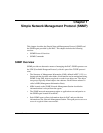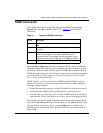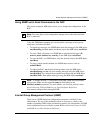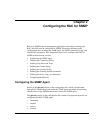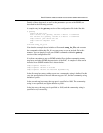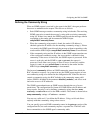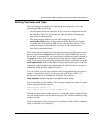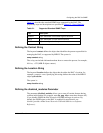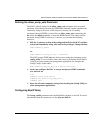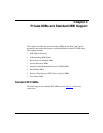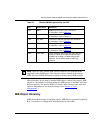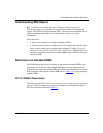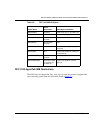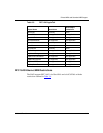
Nortel Networks 5399 and 8000 Access Switch SNMP MIB Reference
2-4 300861-C Rev. 00
Defining Trap Hosts and Traps
The RAC employs two methods for defining the host addresses it uses when
generating SNMP trap messages.
• The first method loads the trap hosts (if any) from the configuration file into
the Trap Host Table. You can modify this table by adding or deleting trap
hosts in the configuration file.
• The second method defines up to ten static trap hosts using the
anxTrapHostTable objects in the proprietary MIB. However, the changes
you make directly through the MIB are lost when the RAC reboots. If you
want your changes to be permanent, you must use the configuration as
described in the method above.
Traps are unsolicited administrative messages generated by SNMP agents on the
network. The keyword traphost defines the host to which SNMP traps are sent.
For the RAC to generate traps, one or more trap host addresses must be defined in
the gateway section of the configuration file along with the SNMP community
string. You can also temporarily add or modify the trap host definitions using the
anxTrapHostTable objects in the MIB. All generated trap messages use the first
community string defined in the configuration file (if the file does not contain a
community string, the RAC defaults to public).
You can specify up to ten static trap hosts in the configuration file, but each host
requires a separate line. Specify a trap host using its IP address (RFC 1157
provides more details on communities and traps). The syntax is:
snmp traphost
<ipaddr>[:udp port number][community string]
You can configure the port number. The following example shows how to use this
feature when specifying a trap host.
snmp traphost 123.245.1.2
snmp traphost 132.245.6.50:1049 mycommstring
In the first trap host entry, neither a port nor a community string is defined. In this
case, the port defaults to the well-known trap port 162, and the community string
defaults to public.
In the second trap host entry, the trap port is specified as 1049, and the community
string is specified as mycommstring.




